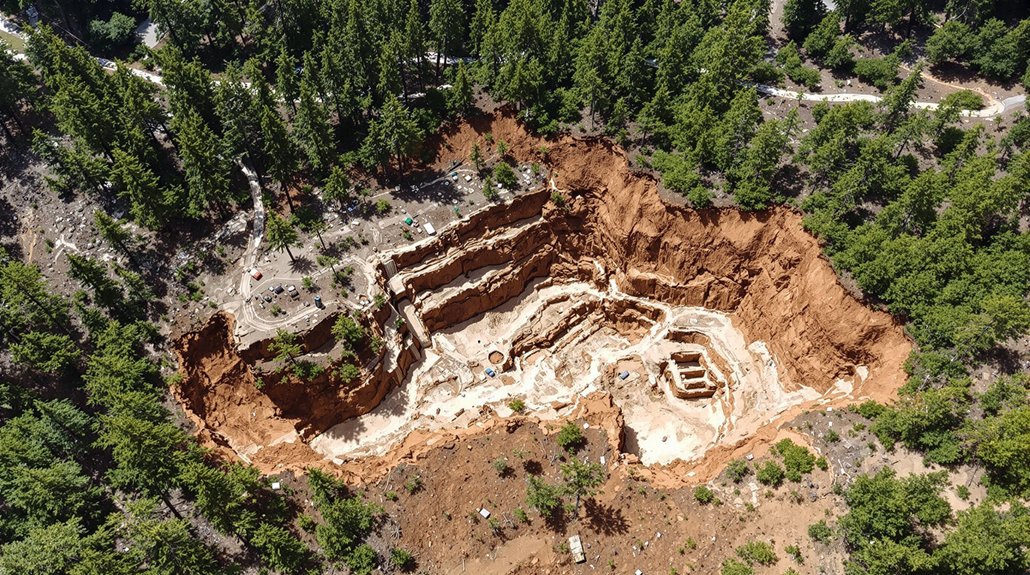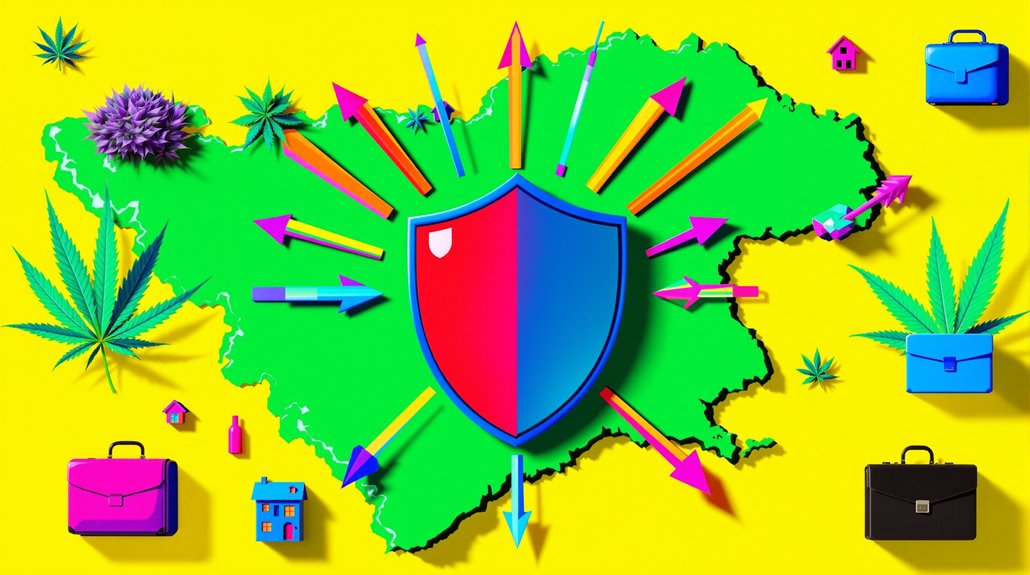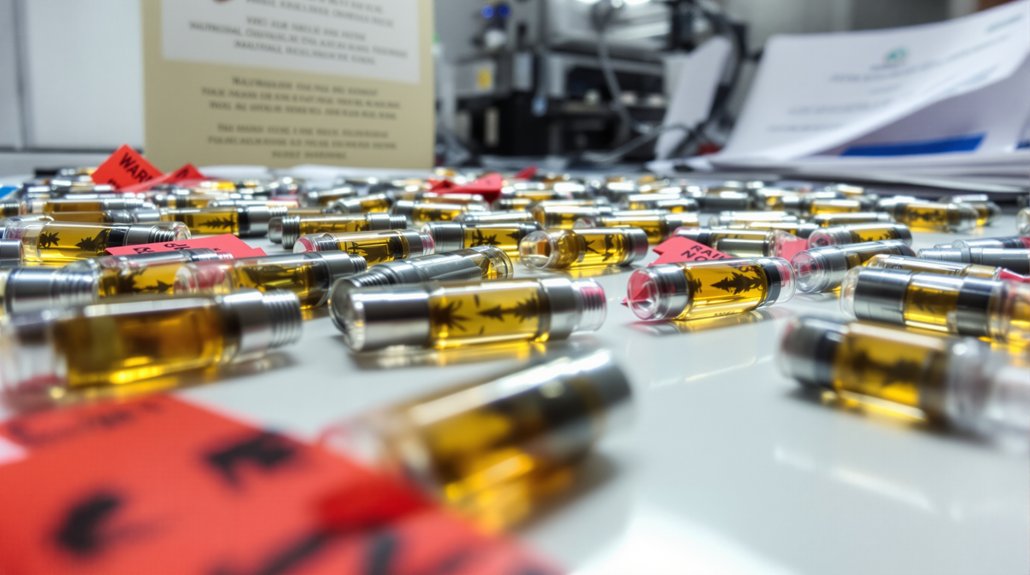After years of environmental damage across 13 acres of protected wilderness, law enforcement officials have successfully dismantled a massive illegal marijuana cultivation operation in Sequoia National Park. The sophisticated drug-trafficking site contained 2,377 marijuana plants, nearly 2,000 pounds of trash and infrastructure, and enough hazardous chemicals to delay restoration efforts for months.
National Park Service rangers and Bureau of Land Management agents discovered the well-organized operation during their 2024 investigation. The site featured makeshift campsites, kitchen facilities, and a semi-automatic pistol, indicating long-term occupation by cultivators. Hand removal and helicopter airlifts became necessary due to the rugged terrain and dangerous materials scattered throughout the area.
The sophisticated illegal operation required extensive infrastructure and weaponry, forcing authorities to deploy helicopters for safe removal across treacherous wilderness terrain.
Environmental destruction extended far beyond simple plant cultivation. Growers cleared native vegetation and carved terraces into hillsides, fundamentally altering the landscape’s natural contours. Water diversion systems redirected creek flows into constructed storage pits, disrupting the park’s hydrology and reducing downstream supplies that support Central Valley agriculture. Each marijuana plant demanded 6-8 gallons of water daily, creating an unsustainable drain on the ecosystem. The growers also created nearly two miles of illegal trails throughout the protected parkland.
The most alarming discovery involved approximately one gallon of Methamidophos, an insecticide banned in the United States since 2009. This highly toxic chemical poses severe risks to birds, fish, bees, and humans, potentially causing respiratory distress, muscle weakness, and convulsions through exposure. Contaminated soil now prevents immediate restoration efforts, while toxic runoff threatens waterways and groundwater systems throughout the region. Unlike legal cannabis products like shatter that contain THC concentrations between 50-95%, these illegal plants may contain dangerous residual chemicals from unregulated cultivation practices.
Wildlife impacts compound the environmental damage. Evidence of poaching emerged during the investigation, threatening iconic species including giant sequoias, peregrine falcons, and bald eagles. Pesticide contamination endangers non-target species across the food chain, while reduced stream flows stress aquatic and riparian habitats essential for biodiversity.
This operation represents part of a troubling two-decade pattern in Sequoia and King’s Canyon Parks. Law enforcement agencies have eradicated nearly 300,000 marijuana plants during this period, yet illegal cultivation continues threatening protected wilderness areas. The parks’ vast wilderness areas, spanning over 1,300 square miles collectively, provide numerous remote locations where drug-trafficking organizations can hide their operations. The combination of banned chemicals, habitat destruction, and water theft creates long-lasting damage that extends far beyond the immediate grow site boundaries.
No arrests have been reported as investigations continue into identifying responsible individuals. The sophisticated nature of this operation, complete with permanent infrastructure and hazardous agricultural chemicals, demonstrates the escalating environmental costs of illegal cultivation in America’s national parks. Restoration efforts will commence once hazardous materials are safely neutralized and removed from the contaminated soil.









